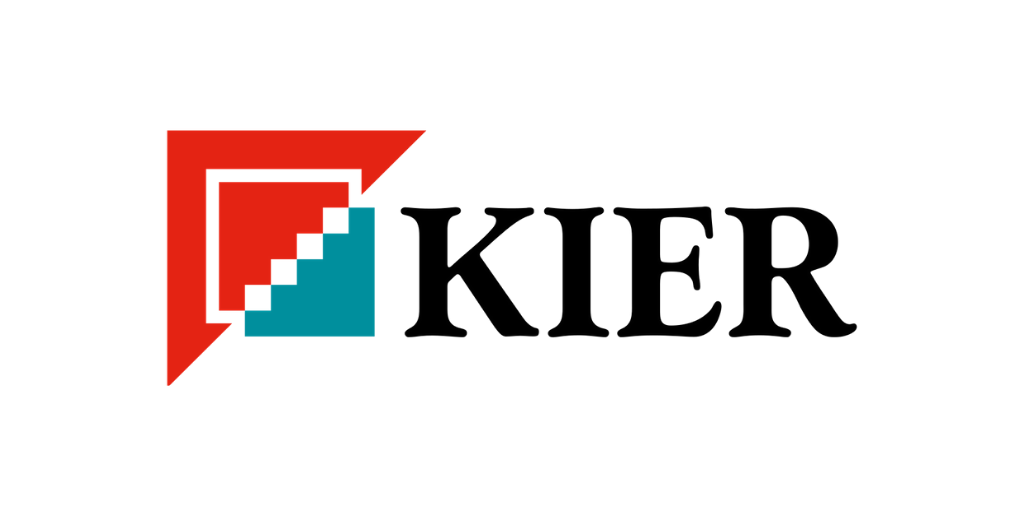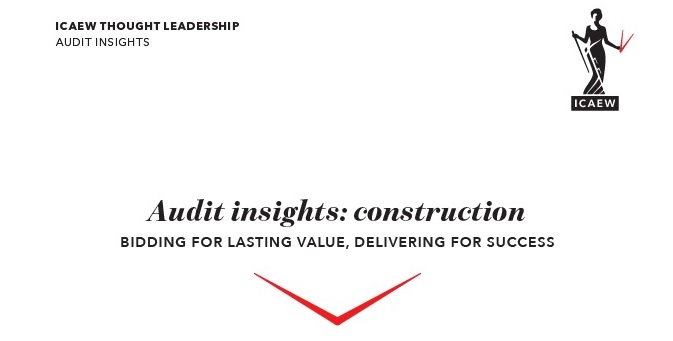
by Clair Mooney | Apr 3, 2019 | Main News Feed
ISG’s turnover jumped from £1.71bn to £2.24 in 2018, a significant jump of more than £500m in one year.
The main factors behind the increase were more work from the public sector; expanding in the small to medium fit-out market and increased work in continental Europe.
Chief executive Paul Cossell welcomed the growth but told Construction News it was not his company’s main focus. “We try not to talk about turnover growth, which has been the sector’s norm. We’re really interested in margin and cash growth”.
“There is no pressure to chase volume or to do anything that brings cash flow in,” he added.
Pre-tax profit for ISG tripled from £9.1m in 2017 to £27.4m for the year ending 31 December 2018, according to its accounts, with the corresponding margin increasing from 0.5 per cent to 1.2 per cent.
Mr Cossell said the margin for 2018 was “okay” and the company expected to do better in 2019. “We will be disappointed if we don’t break the 2 per cent barrier in 2019,” he said.
The company has a margin target of 4 per cent by 2024.
All five of ISG’s operating areas reported increases in revenue for 2018 with four of them also reporting increases in underlying pre-tax profit.
UK construction, the second largest division after UK fit-out, was the only operation to falter. Profit slipped from £6.8m to £5.7m while revenue increased from £480m to £520.2m.
Mr Cossell said 2018 was a transitional year for the UK construction business, which was the last division in ISG to be “modernised”.
Management has been overhauled, with Interserve’s former construction managing director Gordon Kew taking over as chief operating officer and Steven McGee coming in as new MD for the South.
The business has also started to win projects larger than the sub-£100m jobs that ISG was known for, Mr Cossell said.
Over the past year the firm secured four jobs in £200m-£400m range and another £300m-plus job in London is in the pipeline for 2019.
“It’s all for selected clients in targeted sectors,” Mr Cossell added. “It’s not growth for growth’s sake.”
Aside from public sector work won mainly through frameworks, ISG construction is focused on the higher education, hospitality and leisure, office, residential build-to-rent and the industrial market, especially distribution centres and warehouses.
Mr Cossell said the construction business’s order book was “pretty full” and that “2019 will be okay, but 2020 is going to be very good” for the business.
With the construction business overhauled, the ISG group was now capable of delivering up to £3bn of work a year, but Mr Cossell said it would ideally be less than that.
“£2.5bn [annual revenue] feels like the natural level, but that can flex down or up,” he added.
“We would like to think [for 2019] it’ll be around £2.5bn with a 2 per cent margin.”
To manage the growth the company is on a hiring spree and expects to recruit somewhere in the region of 600 to 700 new people this year.
“From a talent acquisition point of view we’ve certainly seen more good people in the marketplace that we think helps us, so we’re receptive to talent that wants to come to a different business,” Mr Cossell said.
Source: Construction News

by Clair Mooney | Mar 29, 2019 | Main News Feed
FIS is a proud partner of the Inspiring Change Conference and members are encouraged to enter the Inspiring Change Awards which highlight and reward organisations within the sector that have created more inclusive cultures in their workplaces, education, and the community.
The Conference itself will bring together a range of inspirational industry-wide speakers, including politicians, industry stakeholders and representatives from a wide range of sectors.
The conference will take place on Tuesday 21 May 2019 from 10.00-16.30 at No 11 Cavendish Square, London, W1G 0AN.
The event is free to attend and will share client expectations and good practice from within the construction industry and beyond to advance the understanding of the business and societal benefits of developing a culture of fairness, inclusion and respect within the workplace. Attendees will be able to network with 300 like-minded professionals.
For more information about the conference, how to enter the awards and take advantage of award sponsorship opportunities visit the website at: www.inspiringchangeawards.com or email Brionywickenden@ceca.co.uk

by Clair Mooney | Mar 29, 2019 | Main News Feed
The controversial new plan forms part of its new Working as One initiative. This has been designed to overhaul and promote better supply chain relationships across the group.
Kier says it is revamping its supply chain approach to encourage greater collaboration and alignment with subcontractors.
But some subcontractors claim it is the latest twist in a developing pay to get paid culture as main contractors seek to strengthen balance sheets as clients shy away from large upfront payments on jobs.
Kier has called meetings with large groups of subcontractors at its London office to explain the new banded structure before the system is piloted in the south east.
Subcontractors were told to keep the plan under wraps although the Enquirer has been told the new deal for highest ranked strategic subcontractors will involve the new 1.5% ‘management fee’ alongside the promise of more repeat work.
A subcontractor said: “We saw this sort of thing with Carillion – main contractor discounts, rebates. Now we are being asked for 1.5% just to work with them.
“The danger is what Kier is doing becomes contagious and other main contractors sit up and say we need to do this.”
Over 14,000 suppliers and contractors ranging from Tier 1 to micro SMEs work with Kier, with subcontractors alone accounting for £2.4bn of spending each year.
Under the new arrangement, subcontractors and suppliers will be split into four relationship bands. The lowest is a new entrant level where the onus is on communicating expected standards.
Firms at the “approved” level will be pre-qualified to Kier standards, be involved in training and upskilling with tender opportunities highlighted across the group.
Preferred contractors will have proven track records on projects and use the Kier Early Payment System, which allows payment days to be reduced to 21 days for a fee.
While the system is a voluntary one, it has grown steadily in use and ran at an average debt level of £196m in last six months of last year.
Firms moving to the highest strategic band will be expected to come into greater alignment.
Kier hopes this will involve greater innovation sharing, early work pipeline discussions and agreed standards terms and conditions.
A Kier spokesperson said “We are continuously developing new ways of working with our supply chain. Following feedback from our supply chain partners, we are investing in smarter solutions on a collaborative, voluntary basis.
“Working with larger strategic subcontractors, we are looking to reduce overall project delivery costs within our buildings businesses. This early project engagement with our subcontractors offers them preferred trading terms and the opportunity to develop project improvements.
“We anticipate this will improve the overall value of project delivery for our clients.”
Source: Construction Enquirer

by Clair Mooney | Mar 29, 2019 | Main News Feed
When construction companies and clients get it right – through project selection based on their ability to deliver, responsible tendering, diligent monitoring, and a proactive attitude to deal with issues such as cost and timetable overruns – they create contracts that are more profitable and provide more enduring value to society.
The challenge facing the construction sector is that, regardless of the economic climate, contracting can be precarious. The lethal cocktail of low margins and high risks means even the largest firms can find themselves just a few contracts away from slipping into the red. This pressure is further compounded by the longest decline in bank lending for construction companies since 2011 – because of fears of a downturn in the economy and the impact of Brexit – at a time when firms need to manage their debt.
Against this difficult background, our Audit insights report examines four key areas that need to be addressed by construction firms if they are to run sound, well-managed businesses:
- bidding for lasting value;
- delivering for success;
- rebuilding confidence through increased transparency; and
- getting fit for the future.
This report brings together the expert insights of auditors with many years’ experience of independently examining and auditing construction firms from: BDO, Deloitte, EY, Grant Thornton, KPMG, Mazars, The Orange Partnership, PwC and RSM

by Clair Mooney | Mar 25, 2019 | Main News Feed
FIS and the Steel Construction Institute (SCI) will launch the much-awaited Technical Report ED017 – Design and Installation of Light Steel External Wall Systems guide with a consortium of industry partners on Thursday 16 May.
SFS is the lightweight steel frame used to create the inner leaf of an external wall, it’s been around for over 20 years but its benefits are just being realised, which is why so many projects are using it, but there are problems being created because of a lack of planning and knowledge. It’s the first thing you see, but often the last thing that’s designed in a building, and that’s the issue.
SFS is seen as non-load bearing, not holding the structure up but it is supporting cladding, internal linings, insulation and perhaps even services. There are significant implications should it fail, which could lead to the external cladding falling off.
Who is the guide aimed at and why should they use it?
- The guide is for anyone who designs and installs SFS infill walls
- Anyone checking that the products are being correctly installed, such as a ‘Clerk of Works’.
- It will help to raise standards
- Show clients what SFS is and how it works
- It will get people thinking about what is expected of them, the design and the final installation
- It will give installers the confidence to question designs and provide guidance to ensure the installation is as good as it can be
- The document includes checklists as well as guidance that makes people stop and check that all the information that should be provided, is provided.
As the landscape post-Grenfell develops, we envisage that it will be very different from the way in which buildings are being designed and constructed now, this guide will become the go to reference for all involved.
Book your place at the SFS guide launch now, it will allow you engage with industry experts in this specialised area and network with other professionals.






